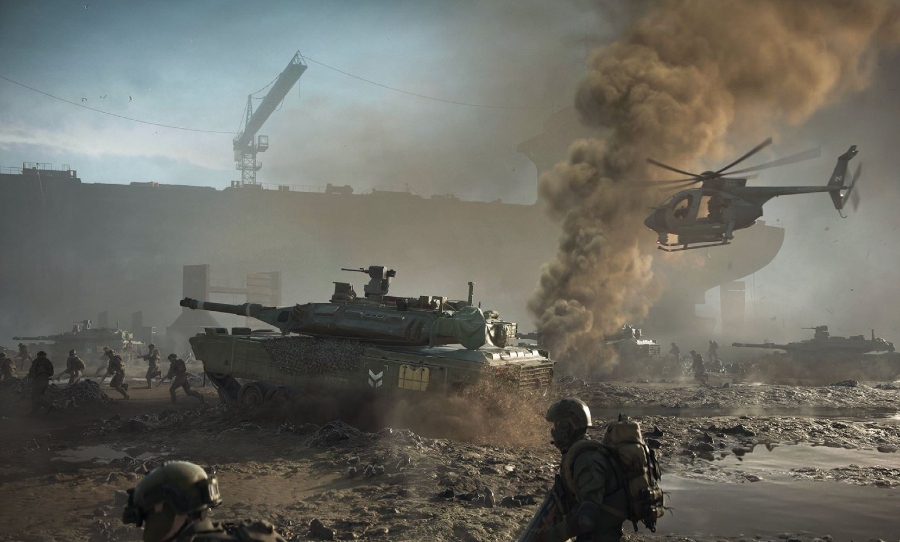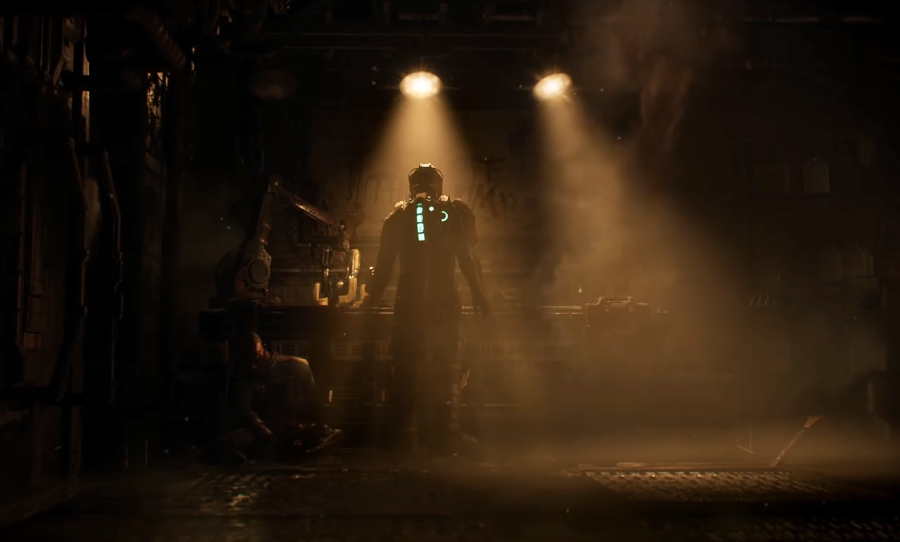Battlefield 2042’s developer has claimed that the premise of a war exploiting refugees amidst a climate catastrophe is for “gameplay reasons across the board”. But really it’s impossible to deny the sociopolitical context behind the game’s setting.
Battlefield 2042 is a game that seems inherently political at first glance – the highly-anticipated first-person shooter is set in a world ravished by a climate apocalypse that sparks an unprecedented refugee crisis, resulting in the conscription of soldiers in a new World War. Curiously, however, the game’s developers claim that they aren’t trying to make any social commentary.
An interview conducted by IGN shortly after the presentation of the game’s reveal trailer has made the perspective of design director Daniel Berlin clear. While his answer on behalf of DICE, the primary developers of the Battlefield franchise, suggested that the game’s setting is purely for narrative purposes, it feels impossible to separate the premise from existing global politics.

After watching the reveal and becoming increasingly aware of how many of Battlefield 2042’s themes seemed to arise directly from currently unfolding events, IGN’s Luke Winkie directly questioned Berlin about their intentions:
“[Battlefield 2042] is talking about de-patriated people, we’re talking about citizens who’ve been displaced by climate change and war. Is there any sort of sensitivity towards those issues for you guys?
Is there any social commentary anywhere with what you’re trying to do? Or is this purely just a multiplayer game?”
Berlin’s unabridged response clarified his stance on the game’s political ramifications, or lack thereof:
“It is definitely purely a multiplayer game for us. The reason we decided to go down this route is so we could create a narrative with this world that we could create through the eyes of the No-Pats [refugee warriors].
We wanted to get more spectacle in there, and more massive events happening. The setting fits that perfectly. It fits that scale, and it gives us reasons to go all over the world. It’s for gameplay reasons across the board.”
There was a technological blackout, causing rising tensions between nations. You play as these refugees, called No-Pats, and decide which superpower (US or Russia) you fight for.
Sounds very politically charged, no?
— Cade Onder (@Cade_Onder) June 10, 2021
It’s hard to believe that even Berlin believes his own words. Battlefield 2042 is a game centred on the two superpowers, the US and Russia, recruiting vulnerable citizens to slaughter each other in a battle for resources left scarce by a climate crisis. It seems less like an impossible dystopian dream and more like an interpretation of a bleak but plausible future scenario.
The appeal of such a dramatic, apocalyptic setting from a developers perspective is undeniable, sure – scenes in a Persian Gulf struck by sandstorms and an Antarctic ravaged by the oil industry will inevitably bring the drama in a big way. But pretending these situations that could most certainly occur in the real world, with ecological systems pushed past their limits, has no political basis is naïve.
Ubisoft: “We are not making a political statement with our game”. pic.twitter.com/zB69bTruVD
— D a z e e l (@TheDazeel) May 28, 2021
Battlefield 2042 isn’t the only upcoming major title claiming not to be making social statements of any nature. Ubisoft’s Far Cry 6 has caused a lot of confusion recently, with the game’s narrative director jumping the gun and assuring that “our game doesn’t want to make a political statement about what’s happening in Cuba specifically”, before clarifying that the game is in fact political.
This trend of developers bending over backwards to avoid being perceived as ‘political’ is concerning. In an effort to avoid alienating potential audiences, or receiving scrutiny for their political stances, they’re feigning a dangerous ignorance to reality and failing to acknowledge the very real causes of potential future disasters like a climate apocalypse.
EA can keep sticking to their narrative that the setting of Battlefield 2042 is purely for “gameplay reasons”, but that doesn’t mean a critical audience is going to perceive it that way.



